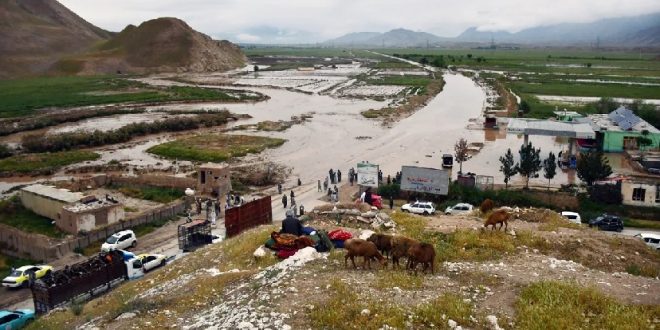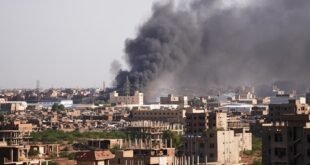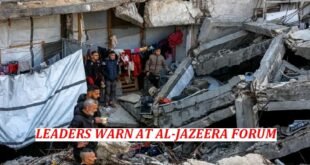12-05-2024
KABUL: The UN said the death toll due to floods caused by heavy seasonal rains has crossed 200.
Flash floods that have ripped through northern Afghanistan left more than 200 people dead in a single province, the United Nations said on Saturday.
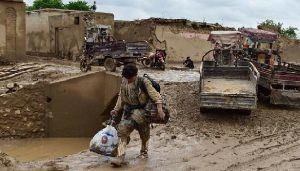 More than 200 people were killed and thousands of houses were destroyed or damaged in Baghlan province when heavy rains on Friday sparked massive flooding, the UN’s International Organization for Migration told media.
More than 200 people were killed and thousands of houses were destroyed or damaged in Baghlan province when heavy rains on Friday sparked massive flooding, the UN’s International Organization for Migration told media.
In Baghlani Jadid district alone, up to 1,500 homes were damaged or destroyed and “more than 100 people died”, an IOM emergency response lead said, citing figures from the Afghanistan National Disaster Management Authority.
Taliban government officials said 62 people had died as of Friday night.
Spokesman Zabihullah Mujahid said “hundreds of our fellow citizens have succumbed to these calamitous floods” in a statement on X, on Saturday, without differentiating the numbers of dead and injured, though he told media dozens had been killed.
Multiple provinces across Afghanistan saw flash flooding, with officials in northern Takhar province reporting 20 dead on Saturday.
Emergency personnel have been deployed to the affected areas and were rushing to rescue injured and stranded people, the defence ministry said.
Afghanistan which had a relatively dry winter, making it more difficult for the soil to absorb rainfall is highly vulnerable to climate change.
The nation, ravaged by four decades of war, is one of the poorest in the world and, according to scientists, one of the worst prepared to face the consequences of global warming.
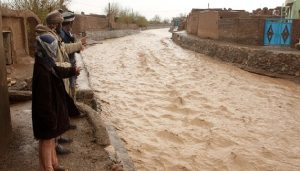 Meanwhile, local official Hedayatullah Hamdard told media emergency personnel including the army were “searching for any possible victims under the mud and rubble”. Tents, blankets and food were provided to some families who had lost their homes, the official added.
Meanwhile, local official Hedayatullah Hamdard told media emergency personnel including the army were “searching for any possible victims under the mud and rubble”. Tents, blankets and food were provided to some families who had lost their homes, the official added.
The main road connecting Kabul to northern Afghanistan is closed.
It comes after flooding last month in the west of the country killed dozens of people, leaving thousands requiring humanitarian aid.
About 2,000 homes, three mosques, and four schools were also damaged.
Flash flooding happens when rain falls so heavily that normal drainage cannot cope.
Experts say a relatively dry winter has made it more difficult for the soil to absorb rainfall.
Torrential rain and flooding kill people every year in Afghanistan, where badly built houses in isolated rural areas are particularly vulnerable.
Afghanistan is among the globe’s most at risk nations from the effects of climate change, according to experts.
The nation is one of the poorest in the world, having been ravaged by decades of war which culminated in the withdrawal of a US-led coalition and the Taliban retaking control in 2021.
Many factors contribute to flooding, but a warming atmosphere caused by climate change makes extreme rainfall more likely.
The world has already warmed by about 1.1C since the industrial era began and temperatures will keep rising unless governments around the world make steep cuts to emissions. As the 28th United Nations Climate Change Conference (COP28) draws closer, participants are already pushing for a strong outcome that supports climate action and the 2030 Agenda for Sustainable Development. Participants at last year’s (Int’l Monitoring Desk)
 Pressmediaofindia
Pressmediaofindia
